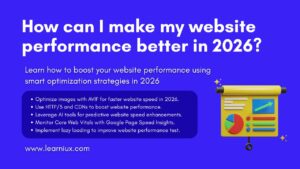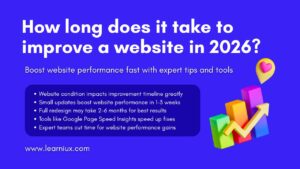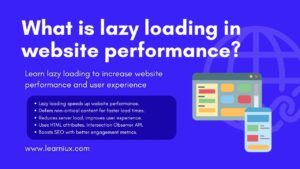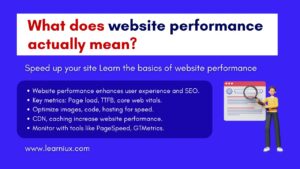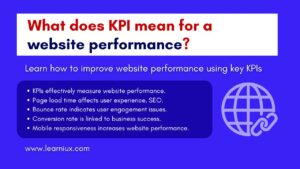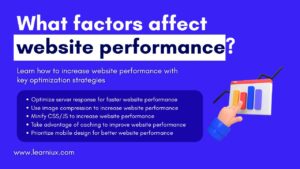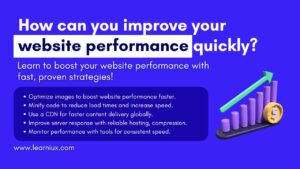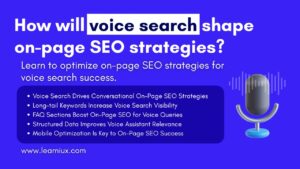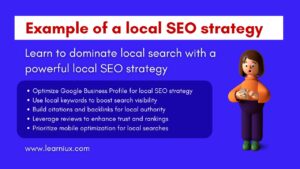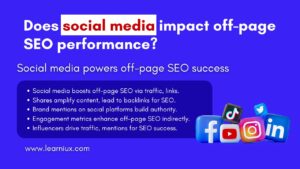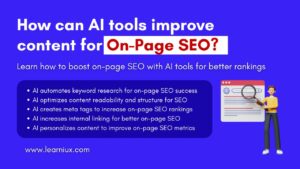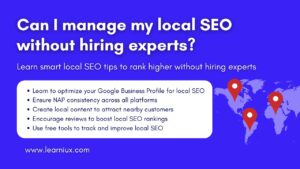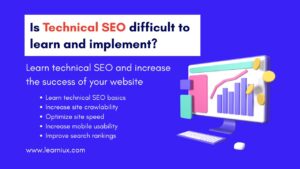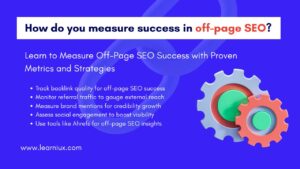Artificial intelligence is reshaping the way businesses approach search engine optimization, providing tools and techniques that make SEO faster, smarter, and more effective. The days of manual keyword research, endless competitor analysis, and guesswork in content creation are dwindling as AI steps in to simplify the process and deliver data-driven results. By using AI, businesses can save time, improve search rankings, and stay ahead in an ever-evolving digital landscape. This article explores how to use AI for SEO, covering practical strategies, essential tools, and actionable steps to optimize a website for better visibility and performance. From keyword research to content creation, technical optimization, and performance tracking, AI offers a wealth of opportunities to enhance SEO efforts while maintaining a human touch for authenticity and quality.
At its core, SEO involves using machine learning, natural language processing, and predictive analytics to understand search engine algorithms and user behavior in AI. Machine learning helps analyze large amounts of data to identify patterns, such as what makes a page rank high or why an audience likes certain content. Natural language processing, on the other hand, enables AI to interpret search queries, understand context, and create content that matches user intent. For example, Google’s algorithms like RankBrain and BERT use AI to deliver more relevant search results by understanding the meaning behind queries rather than just matching keywords. This shift means that SEO professionals must adapt to AI-powered search engines, which prioritize user experience and intent over traditional keyword stuffing. AI also automates repetitive tasks, such as auditing websites or tracking performance metrics, allowing marketers to focus on strategy and creativity.
The benefits of using AI for SEO are numerous and transformative. First, AI speeds up keyword research by analyzing search trends, competition, and user intent in seconds, saving hours of manual work. AI-powered tools can suggest long-tail keywords and related terms that match what users are searching for. Second, AI enhances content creation by providing real-time suggestions for tone, structure, and keyword placement, ensuring that content is engaging and optimized. Third, AI improves on-page optimization by analyzing elements like meta descriptions, titles, and image alt text to ensure they meet best practices. In addition, AI can predict search trends by analyzing historical data and user behavior, helping businesses stay ahead of the curve. Automation of repetitive tasks, such as generating reports for broken links or auditing sites, saves time and reduces human error. Finally, AI provides accurate performance tracking, providing insight into what is working and what needs adjusting, often with actionable recommendations. Studies suggest that AI can reduce content ideation time by up to 70%, allowing teams to focus on strategy and execution.
To effectively implement AI, it’s essential to understand the tools available and how they fit into an SEO strategy. Several AI-powered platforms have emerged as game-changers for SEO professionals. For example, Semrush offers AI-powered keyword research, competitor analysis, and site audits, making it ideal for comprehensive SEO management. Its algorithms analyze search data to suggest high-opportunity keywords and track performance over time. Surfer SEO focuses on on-page optimization, providing real-time content scoring and suggestions based on top-performing pages. The AI writing assistant, Jasper, helps create blog posts, outlines, and meta descriptions, simplifying content creation. ChatGPT, a versatile tool, can be used to brainstorm keyword ideas, draft content, or analyze competitor strategies with custom prompts. Ahrefs uses AI for backlink analysis and rank tracking, helping users build strong link profiles. ClearScope grades content based on its relevance to top-ranking pages, ensuring alignment with search intent. When choosing a tool, consider your specific needs (whether it’s content creation, technical SEO, or analytics) and start with free trials to test compatibility. Many of these tools integrate AI to provide insights that would take hours to uncover manually.
Keyword research is a foundational step in SEO, and AI makes it faster and more accurate. Start by inputting seed keywords into an AI tool like Semrush or ChatGPT. These platforms analyze search volume, competition, and user intent to suggest relevant keywords, including long-tail variations that are easier to rank for. For example, instead of targeting a broad term like “shoes,” AI might recommend “best running shoes for flat feet,” which has less competition and higher intent. Next, use AI to cluster keywords into topics for content planning. Tools like Ahrefs or Semrush can group related terms, helping you create comprehensive content that fully covers the topic. Validate your choices with real-time data like search trends or competitor rankings to make sure you’re targeting the right opportunities. One key tip is to prioritize user intent (whether informational, navigational, or transactional) and focus on low-competition keywords to maximize impact.
Creating content optimized with AI involves a balance of automation and human input. Start by using AI to create a content outline, which provides a clear structure for articles or landing pages. Tools like Jasper or Surfer SEO can suggest titles, subtopics, and keyword placement based on the best-performing content. When drafting content, AI can help write initial drafts, but it’s important to add human edits to ensure authenticity and adherence to Google’s E-E-A-T guidelines – experience, expertise, authority, and trustworthiness. AI tools can also check readability, ensuring sentences are concise and easy to understand. For keyword aggregation, platforms like Clearscope or Surfer SEO recommend optimal keyword density and placement without compromising natural flow. Structured formats, such as bulleted lists, tables, or FAQ sections, improve visibility in AI-powered search results, as they align with how search engines parse information. However, avoid relying solely on AI-generated content, as it may lack originality or depth. A hybrid approach that combines AI drafting with human refinement ensures that content is both optimized and engaging.
On-page optimization is another area where AI shines. Tools like Surfer SEO or SEMrush can create SEO-friendly titles and meta descriptions that attract clicks while aligning with search intent. AI also analyzes heading structures, suggesting improvements to ensure logical flow and keyword inclusion. For images, AI can recommend alt text that includes relevant keywords while accurately describing the image. Internal linking is another focus, with AI suggesting related pages to improve site navigation and retention time. Additionally, AI tools assess keyword density and readability, ensuring that content meets SEO standards without being overwhelming. For example, Surfer SEO provides a content score based on how well your page matches up with top-ranking competitors, making specific recommendations to close the gap. By automating these tasks, AI ensures consistency and saves time, but human oversight is still required to maintain brand voice and relevance.
Technical SEO, which is often complex and time-consuming, becomes more manageable with AI. AI-enabled site audits, available through tools like Semrush or Screaming Frog, identify issues like broken links, slow page speed, or missing metadata in minutes. AI can also generate schema markup, which helps search engines better understand content and enables rich snippets in search results. A feature in some advanced tools, predictive analytics, can flag potential issues before they impact rankings, such as mobile usability issues or crawl errors. Automation extends to creating sitemaps and optimizing robots.txt files, which ensure search engines can index your site efficiently. A best practice is to use clear, descriptive metadata that AI crawlers can easily interpret, as this improves how search engines categorize your content. Regular audits with AI tools keep your site technically sound, allowing you to focus on strategy.
As AI-enabled search engines like ChatGPT and Perplexity gain traction, generative engine optimization, or optimization for GEO, is becoming essential. Unlike traditional SEO, GEO focuses on ranking in AI-powered search results, which prioritize direct, factual answers. To optimize for GEO, create content that has clear, concise answers to common questions, as AI engines often draw on structured data or authoritative sources. Use citations to support claims, as AI values credibility. Entity optimization (ensuring that your brand, products, or services are clearly defined as entities) helps AI engines recognize and rank your content. For example, a well-structured Wikipedia page or detailed “About” section can increase entity recognition. Track mentions of your brand in AI responses and adjust your content based on how these engines interpret the query. By focusing on clarity and authority, you can improve visibility in AI-powered searches.
Measuring SEO success with AI provides deeper insights than traditional analytics. AI tools like Google Analytics 4 or Semrush offer dashboards that interpret data and highlight trends, such as which pages drive traffic or where users are dropping off. Predictive analytics can predict future performance based on historical data, helping you proactively adjust strategies. A/B testing, often automated by AI, allows you to compare different versions of a page to see what performs best. Performance reports generated by AI tools provide clear metrics on ROI, such as how much traffic or revenue a campaign is generating. Review these insights regularly to refine your approach, focusing on metrics like organic traffic, click-through rate, and conversion rate. AI’s ability to detect anomalies, such as sudden drops in rankings, ensures that you can quickly resolve the issue.
Despite its benefits, using AI for SEO comes with challenges. Over-reliance on AI can result in generic content that lacks originality, which can lead to search engine penalties. To avoid this, always include human expertise to add unique insights and brand voice. Algorithm changes are another obstacle, as search engines frequently update how they rank content. Staying informed through industry blogs and testing hybrid strategies can help mitigate this risk. Data privacy is a concern when using AI tools, so choose a platform that complies with regulations such as GDPR. Price can also be a barrier, as premium AI tools require a subscription. Start with free versions or trials to test their value before committing. By addressing these challenges, you can maximize the benefits of AI while minimizing risk.
AI is a powerful ally for SEO, providing tools and strategies to enhance every aspect of optimization, from keyword research to technical audits. By thoughtfully integrating AI, businesses can save time, improve rankings, and deliver content that users will love. Start by experimenting with one or two tools, such as SEMrush for keyword research or Jasper for content creation, and gradually add more tools as you gain confidence. Balancing the power of AI with human creativity is key to ensuring your SEO efforts are effective and authentic. As search engines and user behavior evolve, staying adaptable and informed will keep your strategy moving forward. Start implementing these AI-powered techniques today to see measurable improvements in your site’s performance and visibility.





















